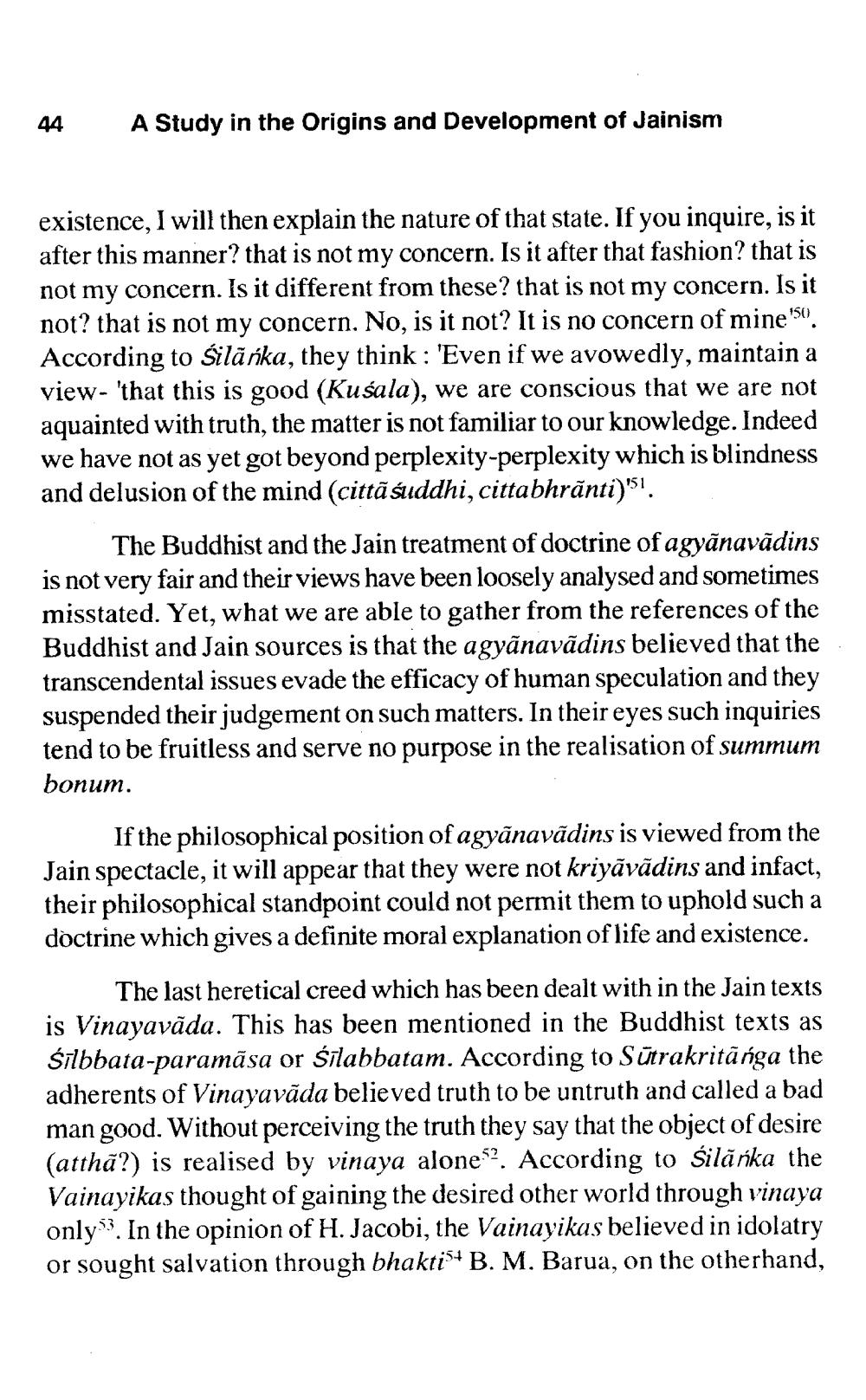________________
44
A Study in the Origins and Development of Jainism
existence, I will then explain the nature of that state. If you inquire, is it after this manner? that is not my concern. Is it after that fashion? that is not my concern. Is it different from these? that is not my concern. Is it not? that is not my concern. No, is it not? It is no concern of mine '50. According to silāńka, they think : 'Even if we avowedly, maintain a view- 'that this is good (Kusala), we are conscious that we are not aquainted with truth, the matter is not familiar to our knowledge. Indeed we have not as yet got beyond perplexity-perplexity which is blindness and delusion of the mind (cittāśuddhi, cittabhrānti)'1.
The Buddhist and the Jain treatment of doctrine of agyānavādins is not very fair and their views have been loosely analysed and sometimes misstated. Yet, what we are able to gather from the references of the Buddhist and Jain sources is that the agyānavādins believed that the transcendental issues evade the efficacy of human speculation and they suspended their judgement on such matters. In their eyes such inquiries tend to be fruitless and serve no purpose in the realisation of summum bonum.
If the philosophical position of agyānavādins is viewed from the Jain spectacle, it will appear that they were not kriyāvādins and infact, their philosophical standpoint could not permit them to uphold such a doctrine which gives a definite moral explanation of life and existence.
The last heretical creed which has been dealt with in the Jain texts is Vinayavāda. This has been mentioned in the Buddhist texts as Śilbbata-paramāsa or śīlabbatam. According to Sūtrakritānga the adherents of Vinayavāda believed truth to be untruth and called a bad man good. Without perceiving the truth they say that the object of desire (atthā?) is realised by vinaya alones?. According to śilărka the Vainayikas thought of gaining the desired other world through vinaya only 3. In the opinion of H. Jacobi, the Vainayikas believed in idolatry or sought salvation through bhaktiS+ B. M. Barua, on the otherhand,




